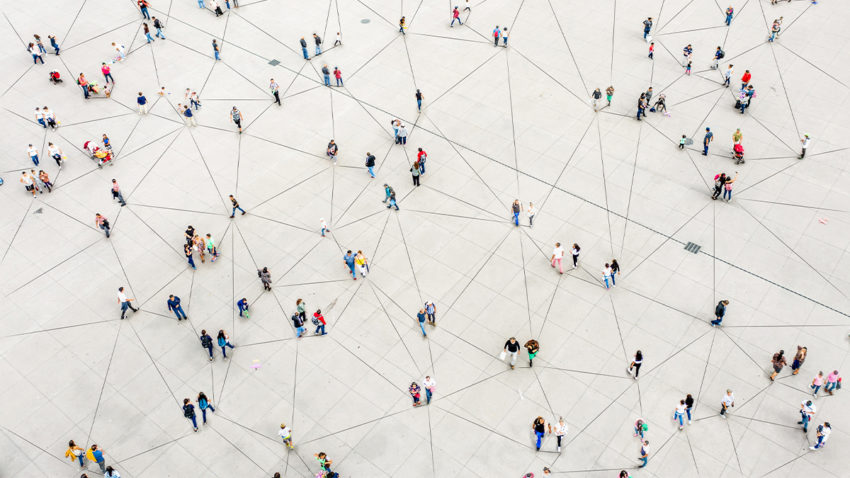Looking at my colleagues and work friends, a lot of us long to return to the office. Don’t you remember coming in late and rushing to the check in, chatting over our morning coffee, laughter that fills the office walls and the God forsaken lunch break that takes longer than it should, topped off with 5pm ‘see you tomorrow’ and the hours we spend in traffic to go back home?
This way of life seems so far away now that we put it to words. While some offices are returning to their normal habits, the future may look a little different than what we remember pre COVID-19. Ahmed Sultan, the CEO of Multiplier Consultancy and HR expert with over 17 years of experience spoke with the CEO of BlueWorld Supply Chain Consulting, Jake Barr.
Previously, we spoke to Sultan on what business leadership should be doing to get through the pandemic, but now, we are way past ‘making it’ and more on ‘what will life look like’; and this is exactly what Barr walks us through.
Office Renovations: It’s No Longer ‘The Office’
“If you really walk into this situation and as you are coming out of it, believe that life is going to return to what it was before, I think you are mistaken,” said Barr.
Barr explained that the way in which ‘work’ will be transformed starts with how we do work in the first place. It’s true that a large number of people lost their jobs during the pandemic, but at the same time an even larger amount of people had to adapt to ‘work from home’ and ‘working online’ to keep business running.
“The way we previously thought was that for work to get accomplished, everyone had to come together to a location. Realistically, you’re going to see very little of that,” explained Barr.
He added that, eventually a lot of companies are going to embrace having their employees work remotely; whether this is for full time or for a service. “The pandemic has demonstrated that the digital world of telecommunications can in fact support people not having to come together to a single location for work to be done,” he said.
Interestingly enough, this is not just about working within a company and how employees interact, but also about how companies will work with other companies. Generally, one of the hardest things to fathom during the pandemic was ‘disconnect’ between companies and the difficulty in the flow of information to partners, suppliers, contracts and distributors.
This of course, is one reason some companies might not be able to survive coming out of the pandemic. Regardless, those who adapted to the world around them, most likely will be able to go on.
Shopping Post-Pandemic
Window shopping becomes scrolling through websites. Grocery lists turn into instashop. Here’s to the rise of digital commerce in the post-pandemic world. True that nothing beats human interaction, but consider that “many store outlets will never open their doors after we come out of the pandemic.”
Barr expressed that this applies to both a developed and developing market. In fact, the market has little to do with the e-commerce rise and more to do with that “we’ve retrained consumers to purchase in a different way. And because they become accustomed to it, their expectation isn’t going to be to ‘go back’, it will be improvements in the way the new normal exists.”
Gone are the days of getting into your car and actually going somewhere to buy whatever you need.
But speaking of shopping and products in general brings about another subject. Sultan pointed out that many experts, politicians and world leaders are talking about the localization of manufacturing after the pandemic. Inevitably, this raises the question of ‘are we moving to a non-globalized’ world?
Well, the short answer is no. However, “there will be a committed effort by governments for certain industries and products, because of this pandemic, to incentivise local production,” Barr said.
Are We Turning Into 24/7 People?
In the beginning of the pandemic, work from home meant chilling on the couch while taking calls and finishing tasks. It didn’t really feel like work. But then the days dawned upon us and weekends felt like weekdays, 5pms lost meaning, and the line between personal life and work life blurred.
Whether the world after the pandemic will actually look different is one thing, but maintaining mental health care is another. Barr said that this is where the role of HR needs to come in. “Having people work in a connected, but distributed way from a secondary location in their homes, has created another issue: personal stress.”
Once upon a time, the office was the office and home was home. Home is where you have the right to ‘switch off’. But the connected world doesn’t operate that way. The connected world has no ‘switch off’ button. In fact, it’s 24/7.
And on that note, Barr said that companies need to consider how to help their employees ‘disconnect’ when working from home. “I’ve seen some examples in the pandemic where companies are holding big online meetings to recognize departments and individuals who went above and beyond to help save the company,” he said, as an example to show that some organizations are putting effort in the little things.
Even when far away, making sure people are engaged and committed is crucial. And perhaps, this is the next challenge. We’ve figured out how to work from home and a lot of its dynamics, and now step two is making it ‘a healthy environment’.




























